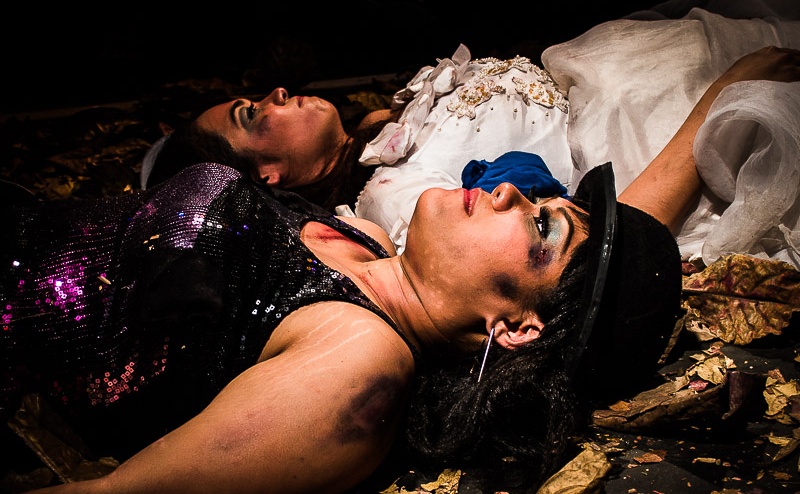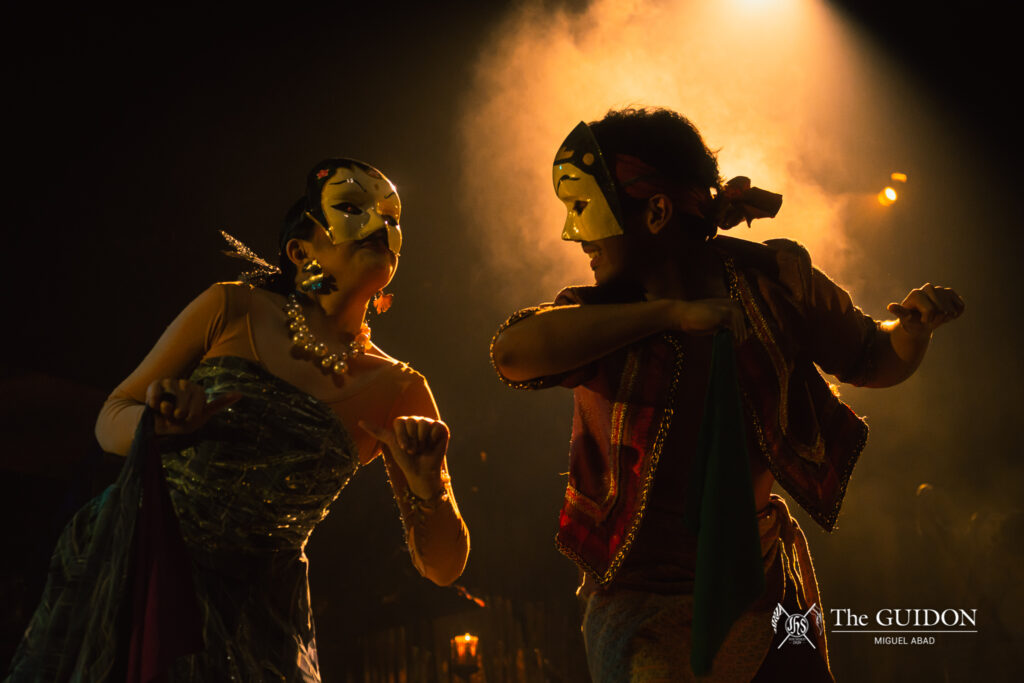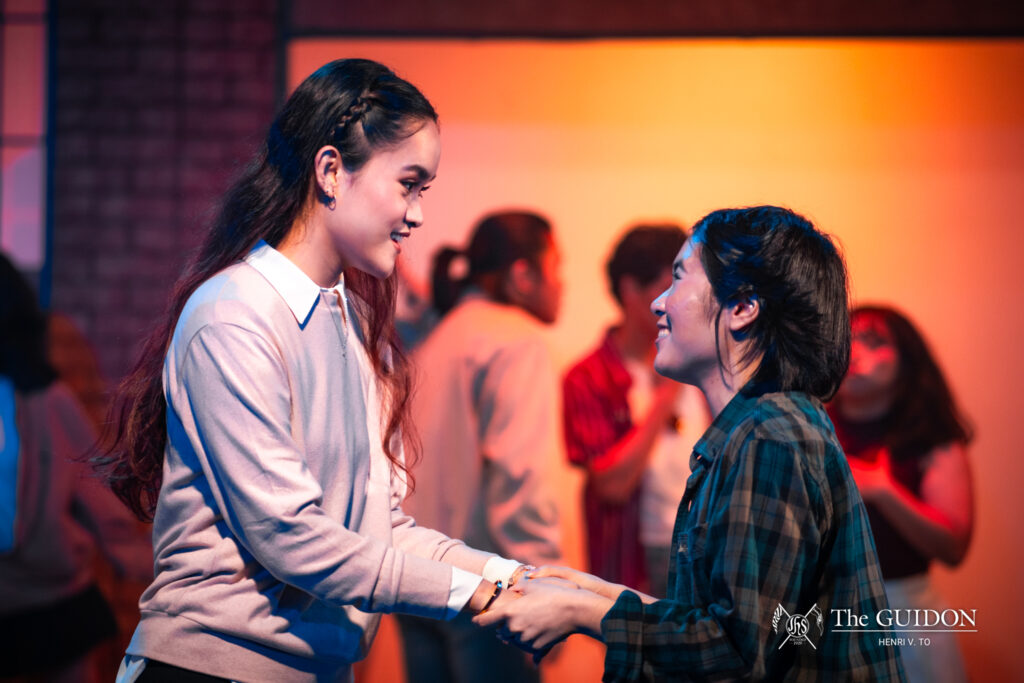This is how Tanghalang Ateneo (TA) affixes its signature upon post-script: Through a thorough interpretation of Nobel Prize winner for Literature Samuel Beckett’s (arguably) most noteworthy play. Godot5: Five Ruminations on Samuel Beckett’s ‘En Attendant Godot’ is the third and final production in Tanghalang Ateneo’s 36th running season, Navigating Identities.
The play was originally written in French and then translated into English—both times by Beckett—and then adapted into the Filipino language by Palanca Award-winner Guelan Varela-Luarca. Godot comes alive as a subtle looming presence with the artistic direction of JK Anicoche and the production design of Ralph Lumbres.
With five sets of adaptations, TA further substantiates how Waiting For Godot has since coursed its way through time, tongue and frontier.
We, too, take part in waiting. The audience is cut into two bodies—each parallel to the other—not quite cut out of view by stark and monochromatic scenery. Idle conversation breaks this stillness. When one looks out into the distance, the horizon is smeared by fog. There is nothing but a long and winding road. It stretches infinitely outward from both sides of the stage. Somewhere along this road, there is a bench. Beside this bench is a tree. The tree is leafless, charred, almost undoubtedly dead. This is where Godot said he would meet us.
What is curious about the adaptations is how they attempt to normalize the unthinkable. The sound of a native tongue brings Godot closer to home. We find familiarity in Didi and Gogo—their speech is colloquial, their attire is almost ordinary. There is, undoubtedly, a dynamic between them that is unique to each set of Godot. Together with them, we pass the time by partaking in their conversation. In one set, even, it becomes interactive.
Yet, the excitement dwindles and we begin to deny the restlessness that looms overhead. The random discourse, petty banter and playfulness between Vladimir and Estragon seems to overstretch. Thus, this theater of the absurd comes to life in the spectacle that is the duo Lucky and Pozzo. In their presence we feel our excitement restored. Their master-slave dynamic seems to pacify the dullness of an almost cyclical series of exchanges, but not for long.
Impatience soon becomes frustration. When Lucky finally speaks, we begin to wonder: when will this waiting end? Where is Godot? Why has he not yet come? The frustration spirals into gloom.
Here blooms the fruit of an expectation unmet—one we are firm to deny. To wait is to allow for stubbornness to endure. To wait is to allow ourselves to be vulnerable to uncertainty. These five roads converge somewhere in the unseen distance where anguish is omnipresent.
The uncertainty kicks in when we finally realize we do not know what it is we are waiting for. For the queer folk, it could be this heart-breaking thirst for acceptance. For women, perhaps the one doesn’t need to arrive. For college kids in beat up togas, it could be the security in a future we cannot picture.
Universal becomes this anticipation for what is unknown. We are left to decide where our hearts lie in this newfound awareness. We await what may possibly never materialize before us. We wait, still, for Godot.
Rating: 4/5
______________________________
GODOT5: Five Ruminations on Samuel Beckett’s ‘En Attendant Godot’ is currently showing at the Black Box Theater of the Ateneo de Manila University on February 10 to 14 and 17 to 21.
Weekday shows will be at 7 PM. Saturday shows, on the other hand, will feature a loop of four consecutive performances featuring different interpretations of the play at 10 AM, 1 PM, 4 PM, and 7 PM.
For details of the show, please contact Madel Juliano at 0917-631-4387 or email ta.mpc78@gmail.com. Check out the schedule of the different sets here, http://tinyurl.com/godotcheatsheet.






